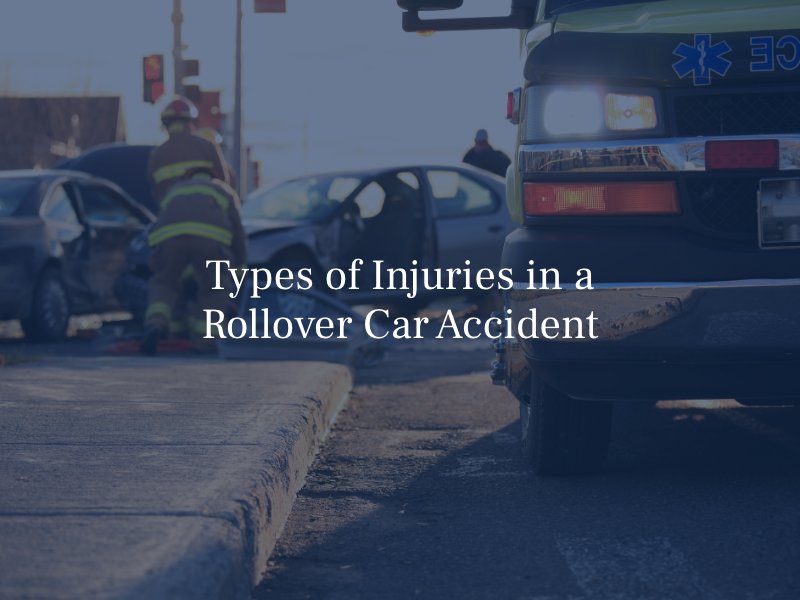Types of Injuries In A Rollover Accident
October 24, 2023 Posted In Car Accidents,Personal Injury
Rollovers can be some of the most devastating types of accidents on the road, often resulting in severe injuries for those involved. Here are some of the most prevalent types of injuries that experienced Riverside car accident lawyers have seen occur.

Traumatic Brain Injuries (TBIs)
A rollover’s sudden and violent motion can lead to varying degrees of head trauma. This can range from concussions, which involve temporary disruption of brain function, to more severe forms like contusions and intracranial hemorrhages, which involve bruising or bleeding within the brain. Additionally, diffuse axonal injuries can occur, affecting the brain’s communication pathways.
TBIs can lead to cognitive impairments, memory deficits, and difficulties with concentration. Physical symptoms such as headaches, dizziness, and fatigue are also common. Emotional and behavioral changes, including mood swings and irritability, may further complicate the recovery process. Prognosis varies widely depending on the severity of the injury and the individual’s response to treatment. Our specialized Riverside traumatic brain injury attorneys have seen that while some individuals may make significant progress with intensive therapy, others may face longer-term challenges.
Spinal Cord Injuries
Spinal cord injury lawyers in Riverside have seen rollover collisions subjecting the spine to intense forces and unnatural movements, resulting in various types of spinal cord injuries ranging from compression fractures to complete paralysis. There are two main categories of spinal cord injuries: complete and incomplete. A complete injury involves a total loss of sensation and motor function below the point of injury, whereas an incomplete injury means some level of function remains. Additionally, spinal cord injuries are classified by their location on the spine, with higher injuries typically resulting in more severe complications.
While complete injuries may lead to long-term challenges, advances in rehabilitation techniques offer hope for regaining some level of independence. Incomplete injuries often have a more favorable outlook, with the potential for significant improvement through focused therapy and rehabilitation.
Fractures and Orthopedic Injuries
Fractures and other orthopedic injuries are a common consequence of rollover accidents, affecting various parts of the body, such as the limbs, ribs, and pelvis. Among the most severe types are compound fractures, where the bone pierces through the skin, and compression fractures, which can impact the spine. These injuries often require immediate medical attention and specialized care. Recovery is challenging, but with proper treatment and rehabilitation, there is the potential to regain mobility.
Internal Organ Damage
Car accidents can lead to blunt force trauma, affecting internal organs. This occurs when the body experiences a sudden deceleration or impact, causing organs to collide with bones or other organs. The chest is particularly vulnerable, leading to injuries like lung contusions and damage to the heart or aorta. The abdomen also houses vital organs like the liver, spleen, and intestines. In a rollover, these organs can be injured due to the pressure exerted on the abdominal area, potentially causing lacerations or contusions. Our experienced car accident attorneys in Riverside have handled cases in which these injuries can be life-threatening and often require surgical intervention and meticulous post-operative care.
Post-Traumatic Stress Disorder (PTSD)
In addition to physical injuries, the psychological impact of a rollover accident can be profound. Individuals may suffer from PTSD, which can manifest in a range of symptoms, from flashbacks to anxiety. Other common symptoms may include avoidance of reminders of the event, negative changes in thoughts and mood, difficulty sleeping, and heightened arousal (such as being easily startled or feeling on edge). These symptoms can persist long after the traumatic event has occurred, and they can significantly impact a person’s daily life, relationships, and overall well-being. It is important to seek help from a mental health professional for a professional diagnosis and treatment, which can include therapy, medication, and various forms of support.